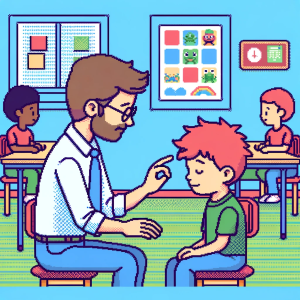
Gratitude: A Protective Shield for Adolescents Facing Stressful Life Events
The article, Gratitude Buffers Against the Effects of Stressful Life Events on Adolescents’ Externalizing Behavior but Not Internalizing Behavior, provides invaluable insights into the role of gratitude in adolescent psychology. Adolescence, a transitionary phase fraught with challenges, often exposes young individuals to stressful life events (SLEs) that can significantly impact their mental health. School psychologists and mental health professionals are consistently seeking strategies to buffer these impacts. The focus of this study is particularly timely, given the increasing awareness of mental health issues in schools.
Understanding Stress and Coping Mechanisms in Adolescents
SLEs can vary in nature, ranging from family disruptions to academic pressures, and their effects manifest in two primary ways: externalizing behaviors (such as aggression) and internalizing behaviors (like anxiety or depression). The study reveals that gratitude, a positive emotional response to receiving a benefit, can play a crucial role in mitigating these effects, especially externalizing behaviors.
The Study at a Glance
Conducted on a group of middle school students in the Southeastern United States, this research employs path analysis to delve into how gratitude can alter the impact of previous stressful events on adolescent behavior. Notably, the study found that gratitude significantly predicted a reduction in externalizing behaviors, but not internalizing behaviors. This discovery is pivotal, emphasizing gratitude’s potential as a tool in reducing outwardly directed negative responses to stress.
The Significance of Gratitude in Early Adolescence
Why does gratitude matter so much during early adolescence? This period is marked by heightened vulnerability and the onset of more complex social and emotional experiences. The study’s findings suggest that fostering a sense of gratitude in students could be a key strategy in promoting healthier responses to stressful situations. By appreciating what they have and recognizing the support around them, adolescents might be less prone to reacting negatively to stress.
Implications for School Psychologists and Educators
For professionals working in school environments, these findings underscore the importance of incorporating gratitude into mental health interventions and educational curricula. Activities that promote gratitude, such as reflective writing or gratitude journals, could be simple yet effective tools in enhancing students’ resilience against stress. It’s about shifting the focus from merely managing negative emotions to actively cultivating positive ones.
Beyond Gratitude: A Holistic Approach
While gratitude shows promise as a protective factor against externalizing behaviors, it’s important to note its limited impact on internalizing behaviors. This highlights the need for a multifaceted approach in addressing adolescent mental health. Other character strengths, like hope and resilience, might play more significant roles in buffering internalizing behaviors.
The Way Forward
Further research is essential to understand the full spectrum of gratitude’s impact and its interaction with various types of stressful events. Additionally, there’s a need for culturally diverse and inclusive studies to ensure the applicability of these findings across different adolescent populations. Integrating gratitude-focused strategies into educational and psychological practices has the potential to foster more resilient and mentally healthy adolescents.
Join the Educational Revolution!
Begin your adventure with This Week in School Psychology for only $5 a month or $50 annually. Be at the forefront of educational breakthroughs and mental health insights. Subscribe to become a beacon of knowledge in your community, simplifying the complex world of educational research. Why wait? Ignite your passion for learning today and enjoy exclusive savings with our annual plan!



